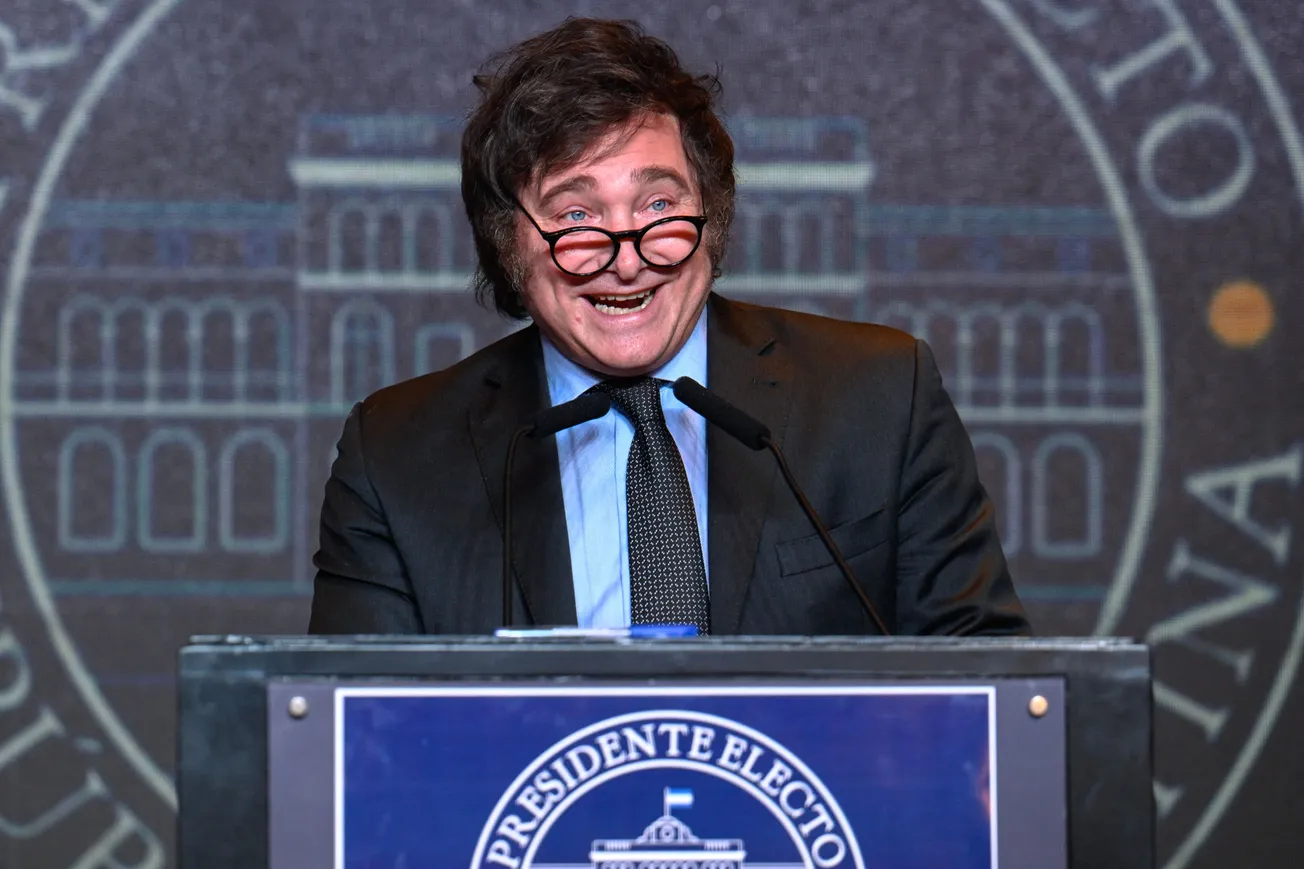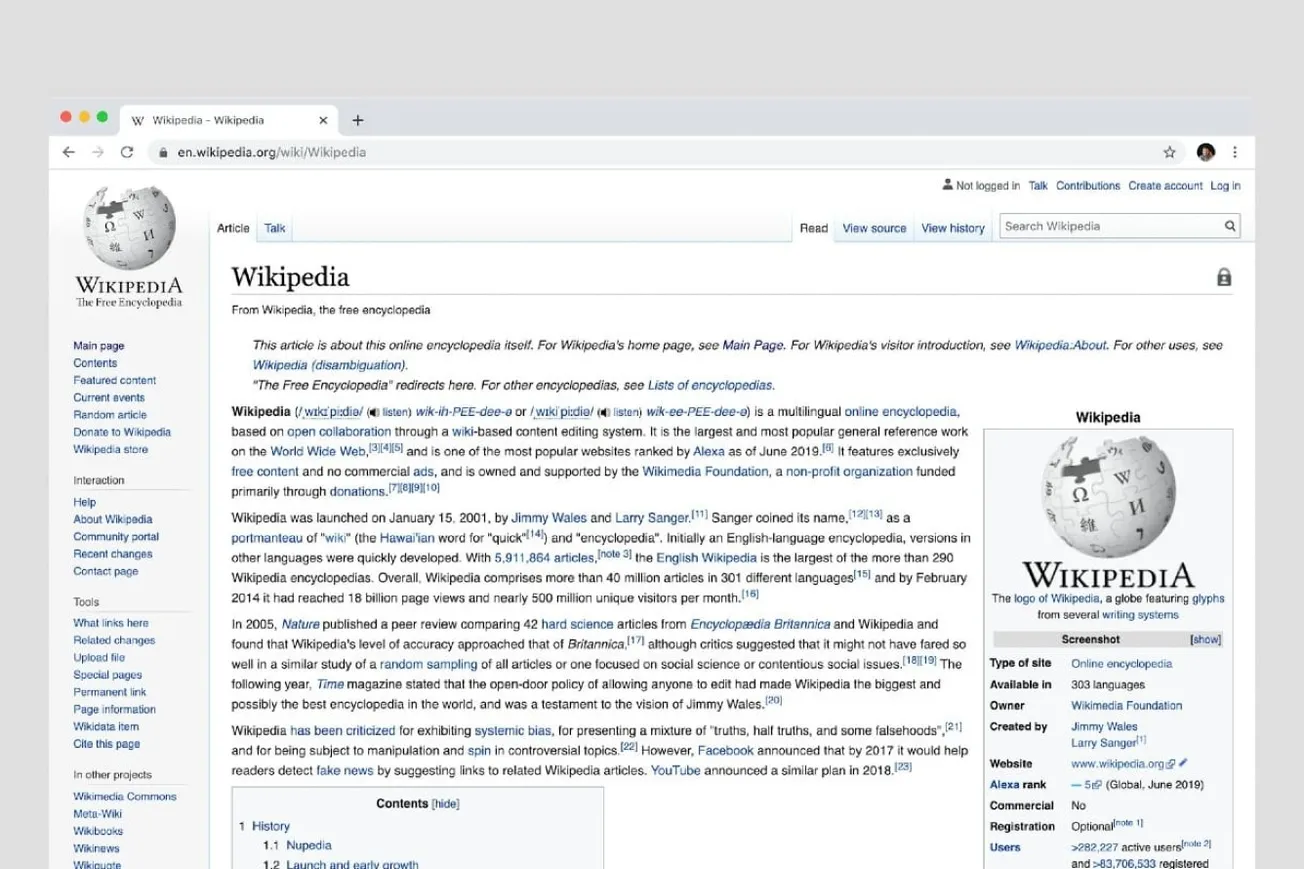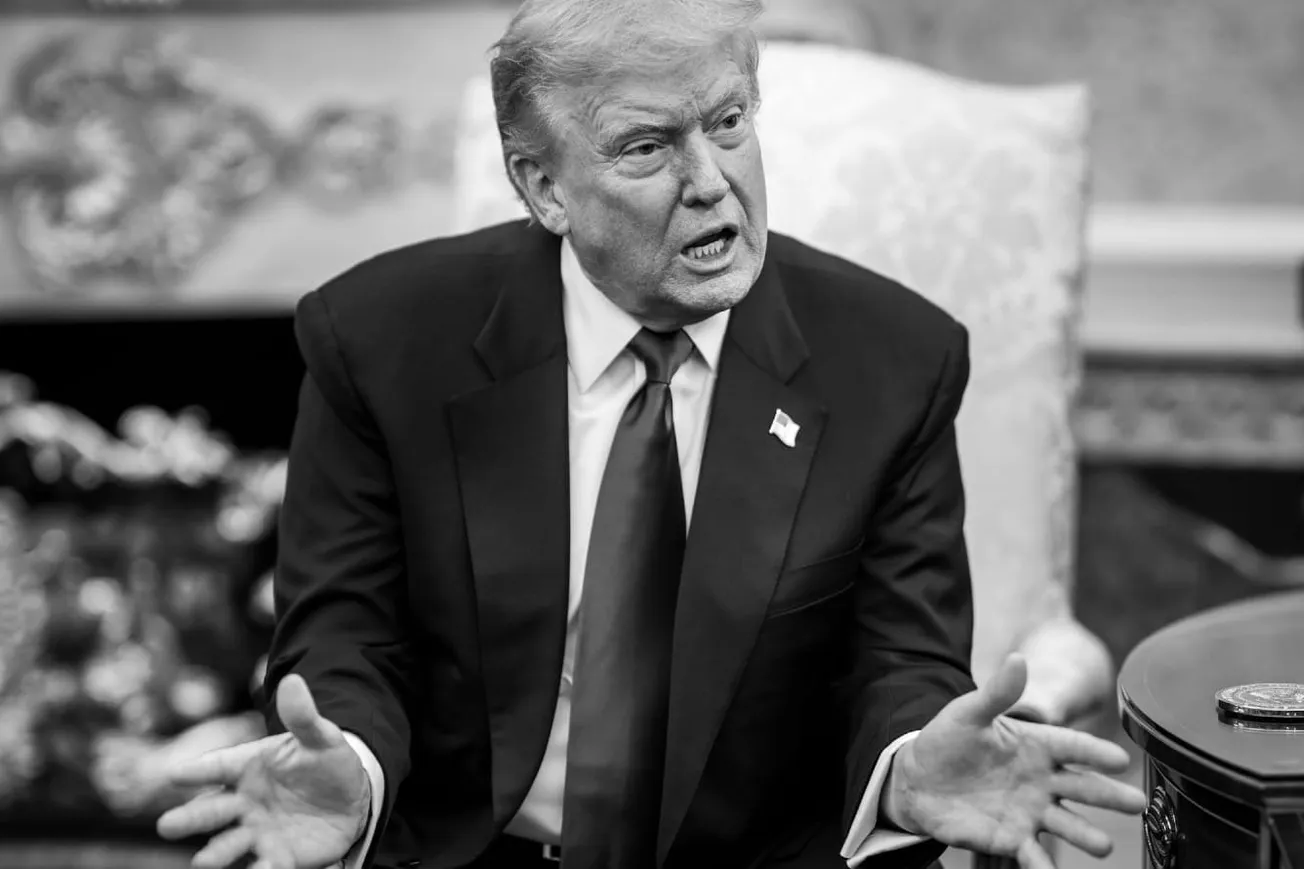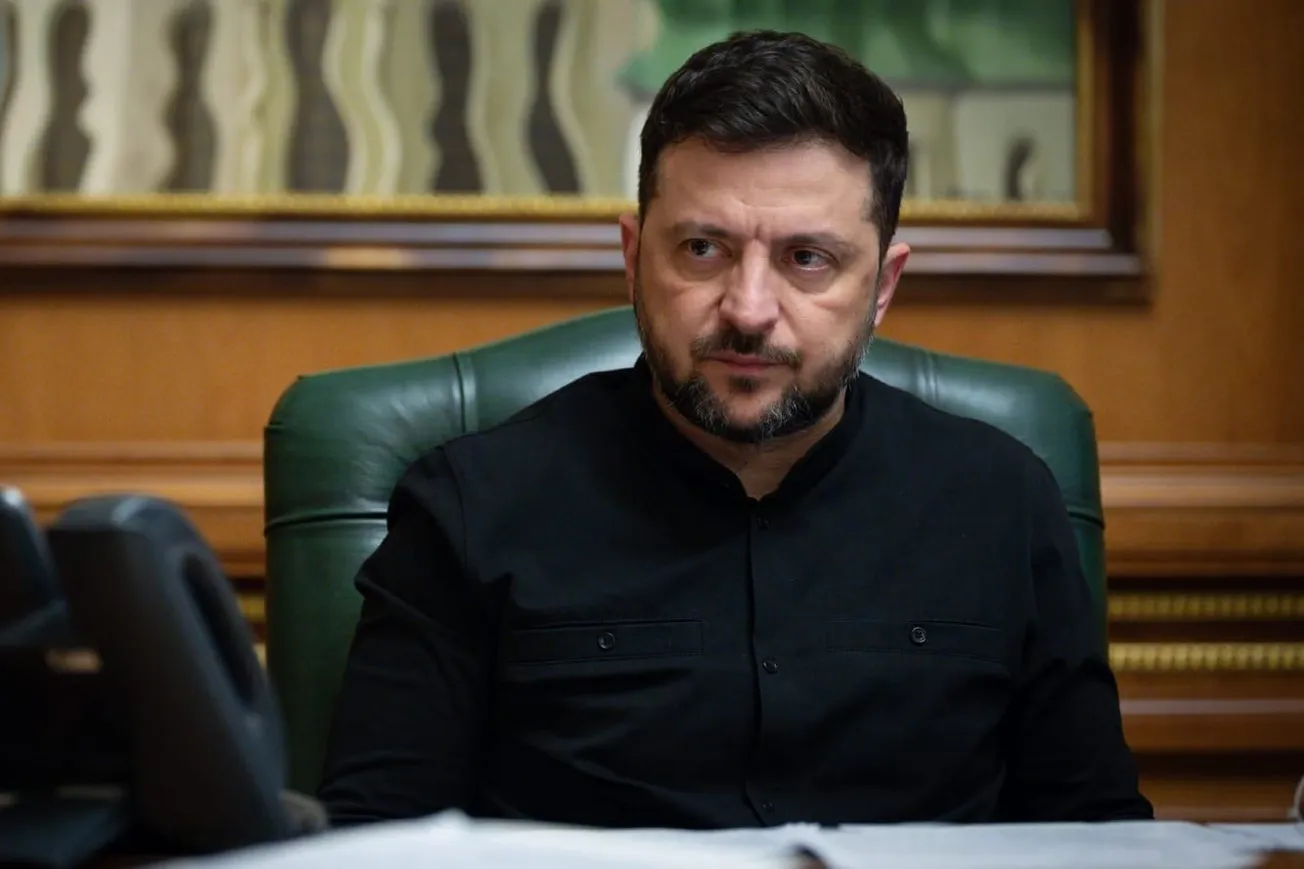- Javier Milei's election as Argentina's President could reshape South American geopolitics
- Milei plans to replace the peso with the US dollar, privatize state-owned firms, and trim the government
- He lacks a strong majority in Congress, leading to potential challenges in implementing his agenda
- Milei holds unconventional views on climate change, opposes abortion, and has caused friction with Pope Francis
- His foreign policy aims to realign Argentina with the United States, potentially leaving Mercosur and distancing from China and Brazil
The results of an election 5000 miles from the U.S. could have far-reaching effects on the geopolitical landscape of South America and beyond. Javier Milei, the self-described anarcho-capitalist, was elected President of Argentina, the continent's second-biggest economy and third-most populous country.
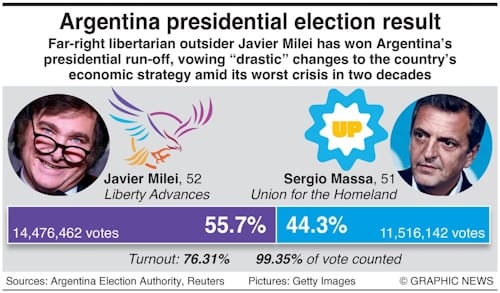
An economist-turned-politician, the incoming president has promised to implement "shock doctrines" to save the country from economic turmoil. One of the drastic measures he proposes is a plan to replace the local currency, the peso, with the American dollar. Melei's solution to rein in inflation, currently pegged at 140%, is to shutter the central bank so politicians can no longer "print" money. He believes it would take up to two years, even with such unconventional methods, to tame inflation.
The far-right president-elect plans to trim the government and do away with several ministries, including those for health and education. Considering that one in four Argentines work for the state and more than half the people benefit from government welfare programs, it has shocked many that he won over 14 million Argentines. In the offing are more relaxed labor laws and plans to privatize all state-owned firms.
Despite his convincing victory, Milei's Liberty Advances, an alliance of various parties, including the Libertarian Party, does not have a significant majority in Congress. This could mean that tough negotiation may ensue after December 10, when he takes office.
Beyond the economy, the president-elect is a climate change skeptic and opposes abortion, which is legal in Argentina. Before being elected, he had expressed plans to conduct a plebiscite to revoke the law. On the campaign trail, his comments about Pope Francis, an Argentine, had caused friction within the country and the Vatican. Dubbed 'El Loco' (the madman) by many of his fans, the 53-year-old's radical policies are bound to shake up the establishment.
Besides his sweeping domestic changes, Milei has plans to redo and realign Buenos Aires' international relations. During the campaign, the political outsider threatened to leave the South American trade bloc, Mercosur, formed by Argentina, Brazil, Paraguay, and Uruguay, in 1994. With Milei's victory, chances of Buenos Aires joining the China-led BRICS have also dimmed.
Diana Mondino, rumored to be the next foreign minister, has stated that the new government will not "promote relations with Brazil and China." Pressed further, she added, "We will stop interacting with the governments of Brazil and China." Brasilia is Argentina's biggest trade partner, and Buenos Aires is a signatory of the Belt and Road Initiative promoted by Chinese President Xi Jinping. Conflicting reports also suggest that Ms. Mondino "dismissed" as "nonsense" suggestions that there will be a break in "commercial relations" with either country.
Milei's declaration, "I am going to be aligned with the United States, Israel, and the free world," augurs well for Washington's efforts to curb Beijing's influence in the South. His first foreign visit as the president-elect to the U.S. could pave the way for stronger ties with the South American country. The outcome of his meetings with U.S. National Security Adviser Jake Sullivan and officials from the International Monetary Fund (IMF), Argentina's largest creditor, could set the tone for his presidency.
Javier Milei, who refers to himself as "the lion," has invited former Brazilian President Jair Bolsonaro, another far-right leader, to his inauguration, signaling a break from established protocols. Transforming campaign promises into real change would mean securing the support of Congress. Transitioning the economy will be an arduous task that calls for a nuanced approach, or he will likely lose the mass support that propelled him to office. The next four years will show how much Argentines will benefit from his austerity measures and realignment policies. The world is watching.
We could use your help. Support our independent journalism with your paid subscription to keep our mission going.

